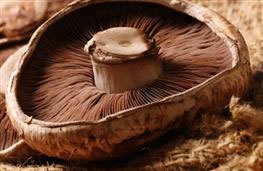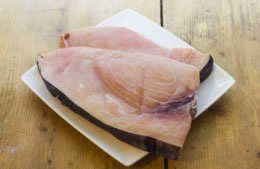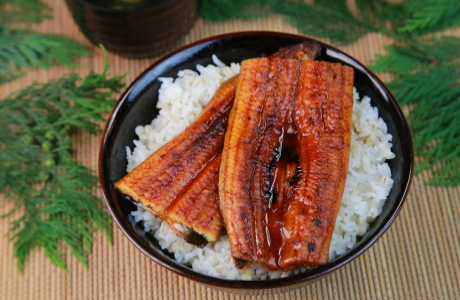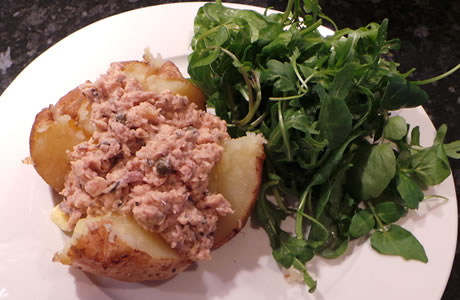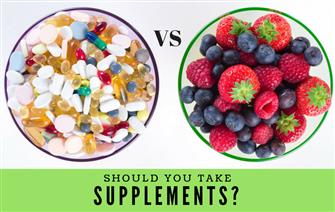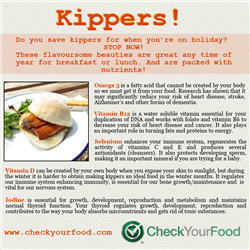Should you take vitamin D supplements?
UPDATED - April 2019
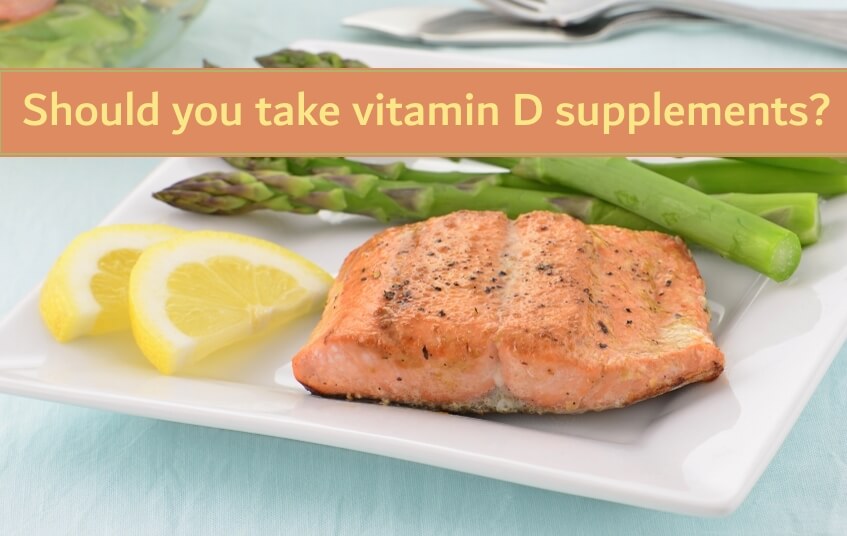
Share
Are you worried about how much vitamin D you or your family are getting? With more and more of us staying in playing video games and checking out social media, we get out and about in the sunshine much less.
But how much vitamin D do you need?
New research (July 2016) carried out by the Scientific Advisory Committee on Nutrition (SCAN) has found that the DRVs (Dietary Reference values, how much you need a day) for vitamin D has been set too low in the UK and the study suggests the DRV should be set at 15µg (micrograms) for healthy bones and muscles.We get most of our vitamin D through sunlight, but the research has found that most people are not getting enough so we need to get more from our food.
Now, the government is concerned that we may not be able to get enough through diet alone and are advising that everyone should take supplements. But do we really need to?
Latest News
April 2019
New research from The Friedman School of Nutrition Science and Policy at Tufts University in April 2019, finds that Nutrients from food, not supplements is linked to lower risks of death.
The objective of the research was to evaluate the association among dietary supplement use, levels of nutrient intake from foods and supplements, and mortality among U.S. adults.
When sources of nutrient intake (food vs. supplement) were evaluated, one of the results the researchers found was:
• The team found indications that use of vitamin D supplements by individuals with no sign of vitamin D deficiency may be associated with an increased risk of death from all causes including cancer. Further research on this potential connection is needed.
Feb 2017 – A study from St Marys University, London.
The team at St Marys analysed raw data from 25 clinical trials involving over 11,000 people from 14 countries to discover if the rise in respiratory infections, colds and flu in the winter months was due to a lack of vitamin D.
What they found was that a low dose of vitamin D supplementation daily or weekly showed a modest benefit for everybody but patients who were very vitamin D deficient showed the most benefit.
They concluded that supplementation and even food fortification was needed. But not everyone agrees with them about fortifying foods as we can get enough vitamin D in the summer from the sun.
Now if you live in the UK or anywhere else with little sunshine in the winter you’re not going to be getting enough in the winter months.
12.7 Food-based strategies for the UK general population (particularly pregnant women, children and ethnic subgroups) to achieve the Safe Intake for vitamin D should be explored and developed.
So let’s check out what we could be eating. Luckily vitamin D is stored in our bodies so if we get more one day and less another it’s not a problem.
Fish is a great way to top up your Vitamin D with oily fish particularly mackerel, kippers, salmon and tinned fish high in this essential vitamin.
Don’t want to eat fish everyday then how about grandmas favourite cod liver oil. Just 1 teaspoon will give you 10.5µg (micrograms). Be sure you buy a pure cod liver oil and not one with added vitamins. Beware; capsules will typically have just 1µg per 2 capsules.
For vegans and vegetarians mushrooms grown under UV lights are a good source of vitamin D. Some supermarkets are now stocking different varieties of mushrooms that have been given light to enhance their vitamin D content, so keep a look out for those.
To check out all of the foods highest in vitamin D just click here.
Here are the typical ingredients for a vitamin D supplement:
Calcium Carbonate, Cellulose, Maltodextrin, Acacia, Sucrose, Magnesium Stearate, Silicon Dioxide, Maize Starch, Triglycerides, Vitamin D3 (Cholecalciferol, from sheep’s wool grease, check out the industrial process here), Antioxidant (Tocopherol).
Would you be happy putting that into your body when you could just be getting it from your food when you know the right foods to eat?
We would normally only provide information on sunshine and food sources of vitamin D, but with how important vitamin D is to your health and the increasing evidence that deficiency is very common, we are very happy to give the information on this product.
Vitashine supplements contain an exclusive 100% vegan and vegetarian suitable vitamin D3. The D3 (Cholecalciferol) comes from a special, organic plant source called a Lichen.
The guys at Vegetology analysed the plant itself, the processed (filtered) material, and the extracted oil to prove and quantify the presence of Vitamin D3. They worked with Independent expert laboratories including Stirling University (world renowned experts in lipid analysis) to validate their research and it is certified. Find out more about them here.
New research from The Friedman School of Nutrition Science and Policy at Tufts University in April 2019, finds that Nutrients from food, not supplements is linked to lower risks of death.
The objective of the research was to evaluate the association among dietary supplement use, levels of nutrient intake from foods and supplements, and mortality among U.S. adults.
When sources of nutrient intake (food vs. supplement) were evaluated, one of the results the researchers found was:
• The team found indications that use of vitamin D supplements by individuals with no sign of vitamin D deficiency may be associated with an increased risk of death from all causes including cancer. Further research on this potential connection is needed.
Feb 2017 – A study from St Marys University, London.
The team at St Marys analysed raw data from 25 clinical trials involving over 11,000 people from 14 countries to discover if the rise in respiratory infections, colds and flu in the winter months was due to a lack of vitamin D.
What they found was that a low dose of vitamin D supplementation daily or weekly showed a modest benefit for everybody but patients who were very vitamin D deficient showed the most benefit.
They concluded that supplementation and even food fortification was needed. But not everyone agrees with them about fortifying foods as we can get enough vitamin D in the summer from the sun.
What should we do?
Remember the best way to get vitamin D is through sunlight so check our sunshine pages for where you live to see how much you need.Now if you live in the UK or anywhere else with little sunshine in the winter you’re not going to be getting enough in the winter months.
So what should you eat?
One of the recommendations from the SCAN report is:12.7 Food-based strategies for the UK general population (particularly pregnant women, children and ethnic subgroups) to achieve the Safe Intake for vitamin D should be explored and developed.
So let’s check out what we could be eating. Luckily vitamin D is stored in our bodies so if we get more one day and less another it’s not a problem.
Fish is a great way to top up your Vitamin D with oily fish particularly mackerel, kippers, salmon and tinned fish high in this essential vitamin.
Don’t want to eat fish everyday then how about grandmas favourite cod liver oil. Just 1 teaspoon will give you 10.5µg (micrograms). Be sure you buy a pure cod liver oil and not one with added vitamins. Beware; capsules will typically have just 1µg per 2 capsules.
For vegans and vegetarians mushrooms grown under UV lights are a good source of vitamin D. Some supermarkets are now stocking different varieties of mushrooms that have been given light to enhance their vitamin D content, so keep a look out for those.
To check out all of the foods highest in vitamin D just click here.
Supplements
Now, if you really don’t think you are going to be able to get enough vitamin D from your diet in the winter we looked at vitamin D supplements and this is what we found:Here are the typical ingredients for a vitamin D supplement:
Calcium Carbonate, Cellulose, Maltodextrin, Acacia, Sucrose, Magnesium Stearate, Silicon Dioxide, Maize Starch, Triglycerides, Vitamin D3 (Cholecalciferol, from sheep’s wool grease, check out the industrial process here), Antioxidant (Tocopherol).
Would you be happy putting that into your body when you could just be getting it from your food when you know the right foods to eat?
Still want to take a supplement?
We did some research and found these:We would normally only provide information on sunshine and food sources of vitamin D, but with how important vitamin D is to your health and the increasing evidence that deficiency is very common, we are very happy to give the information on this product.
Vitashine supplements contain an exclusive 100% vegan and vegetarian suitable vitamin D3. The D3 (Cholecalciferol) comes from a special, organic plant source called a Lichen.
The guys at Vegetology analysed the plant itself, the processed (filtered) material, and the extracted oil to prove and quantify the presence of Vitamin D3. They worked with Independent expert laboratories including Stirling University (world renowned experts in lipid analysis) to validate their research and it is certified. Find out more about them here.
How do I know if I’m getting enough from my food?
Simple keep a food diary. With the food tracker on www.checkyourfood.com it’s easy to input your food every day and the traffic lights report system lets you know at a glance how you are doing.Got all of that? A quick recap
The best way to get your vitamin D is through sunlight, but the government is concerned we are not getting enough from the sun or our food and is suggesting supplements at 10µg a day.If you don’t want to fill your body with supplements then find out what foods you need to eat to get your RDA of 15µg a day.
Vitamin D supplements may lead to an increased risk of death, if you are not vitamin D deficient.
Keep a food diary so you can track your nutrient intake, not just vitamin D but all of the vitamins and minerals needed for good health.
I'd like to start tracking my food
NB At checkyourfood.com we use the official RDA for vitamin D provided by the National Academy of Sciences of 15µg per day.
Keep a food diary so you can track your nutrient intake, not just vitamin D but all of the vitamins and minerals needed for good health.
I'd like to start tracking my food
NB At checkyourfood.com we use the official RDA for vitamin D provided by the National Academy of Sciences of 15µg per day.
Now check these out
Love this? Get blogs and more in your inbox
Subscribe to receive our blogs plus each weeks featured ingredient, recipe and nutrient in your inbox
Thank you for registering

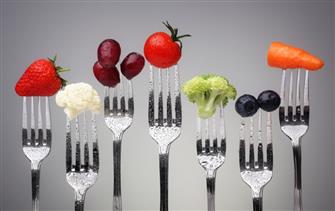 About nutrients
About nutrients
 All nutrients
All nutrients
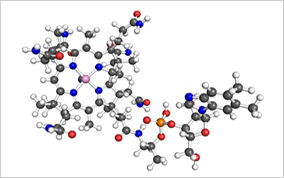 vitamins
vitamins
 minerals
minerals
 phytochemicals
phytochemicals
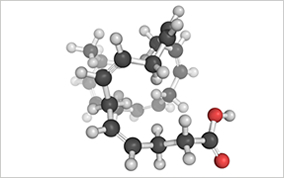 fatty acids
fatty acids
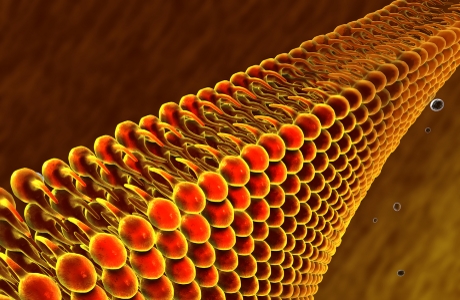 macronutrients
macronutrients
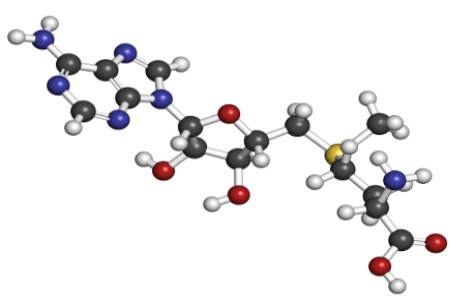 amino acids
amino acids

